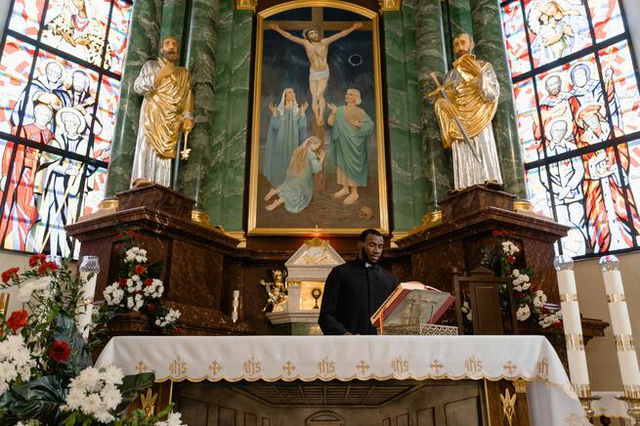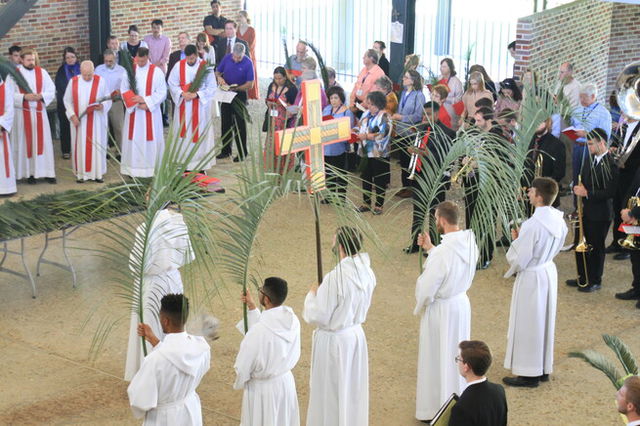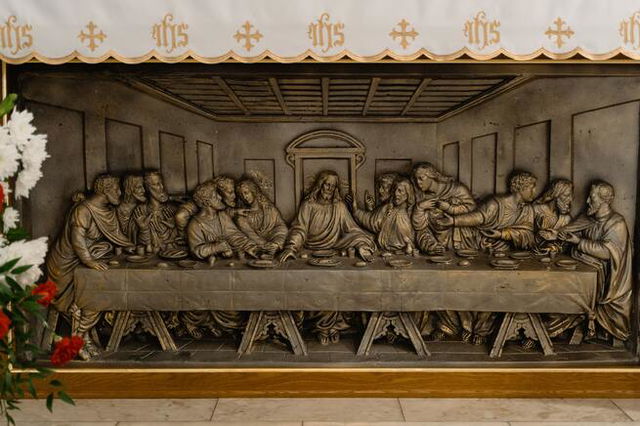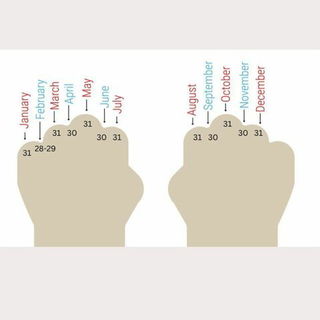Holy Week is the name given to the week that leads up to Easter. It is one of the most important weeks in the Christian calendar. Since Easter is a moveable feast based on the movement of the moon, the date of Holy Week changes every year.
The week is a celebration and remembrance of the events that Christians believe led up to Easter, starting with Jesus's arrival in Jerusalem on Palm Sunday and ending a week later with his resurrection on Easter Sunday.

The Easter Orthodox Church differs from Western European Churches in various ways, and one such example is where Holy week begins. Near recent and future dates of Holy Week Include:
| Year | Western Christian Church |
Eastern Orthodox Church |
| 2022 | 10 April | 17 April |
| 2023 | 2 April | 9 April |
| 2024 | 24 March | 28 April |
| 2025 | 13 April | 13 April |
| 2026 | 29 March | 5 April |
Each day of Holy Week has a different name and significance, some have more rituals than others, but the main overview is as follows:
Palm Sunday (also known as Passion Sunday)

The Sunday before Easter marks the start of Holy Week and it commemorates Jesus' entry into Jerusalem on the back of a donkey. It gets its name from the palm branches that were laid down by people in Jerusalem to welcome Jesus as he rode into the city.
In churches, it is common for crosses made of palm leaves to be handed out and kept for the whole year, to be burnt on Ash Wednesday the following year.
Click here for more information about Palm Sunday
Holy Monday and Holy Tuesday
Neither the Monday nor the Tuesday of Holy Week commemorates any particular moment in Holy Week. But both can be occasionally used by churches that hold daily reflections or services.
Spy Wednesday (also known as Holy Wednesday)
The Wednesday of Holy Week commemorates the betrayal of Jesus by Judas Iscariot (one of Jesus' disciples). The name "Spy Wednesday" comes from the tradition that this was the day Judas Iscariot agreed to betray Jesus to the authorities for thirty pieces of silver.
Maundy Thursday (also known as Holy Thursday)

The Thursday of Holy Week commemorates one of the most famous scenes in Christianity, the 'last supper' of Jesus, where he sat and ate with his disciples and washed the feet of his disciples.
The act of washing his disciple's feet gave the day its name. "Maundy" comes from the Latin word "mandatum," and means "commandment." It refers to the commandment Jesus gave to his disciples to love one another as he had loved them. This is what he was symbolizing with the washing of their feet.
Click here for more information about Maundy Thursday
Good Friday (also known as Holy Friday)
The Friday of Holy Week is the day when we commemorate the crucifixion and death of Jesus.
Despite the brutality of his death, Good Friday is named "good" as it represents the ultimate act of sacrifice and love by Jesus, who Christians believe gave his life to save humanity from sin and death. The crucifixion is seen as the fulfillment of Old Testament prophecies and the ultimate expression of God's love for humanity.
Click here for more information about Good Friday
Holy Saturday (also known as Easter Eve)
This is the Saturday of Holy Week, which commemorates the day that Jesus' body lay in the tomb. It also represents a time of waiting and anticipation for the celebration of Easter Sunday.
Easter Sunday
For many Christians, Easter Sunday is the most important day of the year. Churches are decorated with flowers and special services are held in celebration. Many Christians also exchange greetings and gifts on this day, such as Easter eggs, which are a symbol of new life and rebirth.
Easter Sunday is the day of resurrection. Christians believe that Jesus rose to life and that his tomb was found empty on this day.
Click here for more information about Easter Sunday











